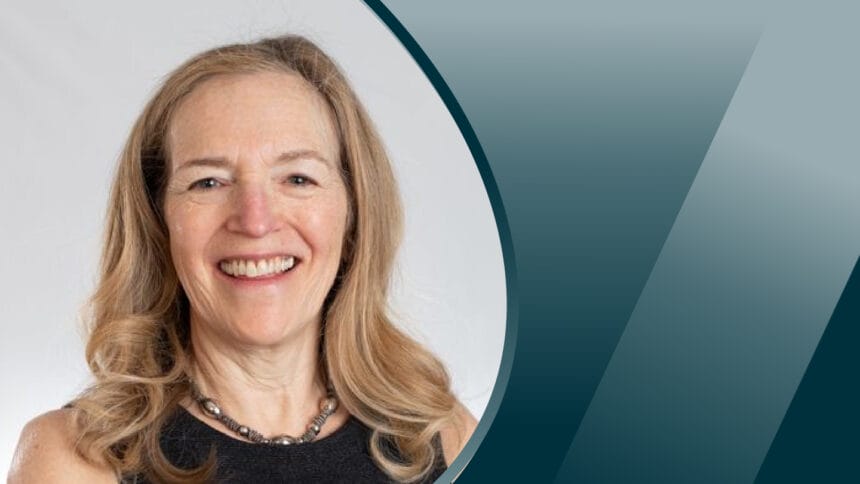
This is a story about global compassion and international support. It’s also a story of an inspiring, breathtaking and standard-setting first day of work in a new organization. And it’s a story of how to raise more than $200,000 in less than a half hour.
Picture this. It’s Feb. 25, day one for me as the incoming CEO of the Association of Jewish Aging Services (AJAS). AJAS members are all Jewish nonprofit communities that provide residential services for older people. We’re based in Maryland, but we were gathering on the other side of the country in La Jolla, CA, for the AJAS Annual Conference.
In the first general session, my predecessor, CEO Don Shulman; board chair Dr. Jeffrey Farber, MD; and board member Andrew Banoff tell the audience of over 300 people that we have an opportunity to help two nursing homes located right near the border of Gaza. Bait Halperin in Askelon, less than 10 miles from the border, and AvotAshdod, just a few miles further north, serve low-income, frail elders, half of whom are Holocaust survivors.
Israel has a strong community service tilt in its long-term care system, so these nursing home residents, like many in the U.S., are not in the best health and experience mobility and cognitive impairments and need substantial ADL support.
Right after the Oct. 7 attack on Israel, AJAS members quickly worked with a colleague in Israel to identify the nursing homes that were hit the hardest. These two were the clear choices.
In those early days, rockets fired all around them. A missile fell near the entrance of Bait Halperin, the nursing home in Askelon. Shrapnel damaged the property, and they had to evacuate all residents to a bomb shelter for six weeks. In Tel Aviv, when the sirens go off, you have 90 seconds to evacuate to a safe place; in Ashdod, you have 60 seconds. In Ashkelon, you have 30 seconds.
Yes, three units of 40 nursing home residents each and the staff who work with them had to be evacuated in that kind of time. Each group of 40 residents sheltered in a space meant for about 15 people. This is essentially the size of one typical nursing home unit, but all the walls are concrete, and they are able to block the windows with concrete.
Immediately, the war caused supply disruptions, with shortages of essential supplies like oxygen. AJAS members looking for a way to help older nursing home residents affected by the conflict donated $20,000, which was used to purchase oxygen generators, helping people breathe, saving lives.
Andrew Banoff visited the homes after AJAS sent the gift and reported that it’s hard to imagine what these organizations’ residents and staff went through. Buses were unable to get to the nursing homes, so staff had no way to get to work. Emergency transportation vehicles had to help — as one of our members said, it’s like a snowstorm only it went on for six weeks. Staff members were going through their own crises, and many were unable to come to work. Getting supplies was a problem. Residents and staff were traumatized. Families could not visit.
Sound familiar? Right, it also reminded me of the pandemic.
After that first gift AJAS members wanted to keep the support going, keep helping some of the most vulnerable older people in Israel. There’s a Jewish value that underlies the mission of most AJAS members — tikkun olam. It means “heal the world.” (It can only be healed by human activity.) It’s the same value that propels AJAS member communities to serve all who need their help (regardless of religion).
Under Don’s leadership, AJAS set the ambitious goal of raising $100,000 ($50,000 for each of the two nursing homes) with a real-time campaign during the annual conference. The session started with a short video showing the impact of the attacks. In the room, about 100 AJAS members and business partners opened their hearts and their wallets and raised more than $200,000, doubling our target and enabling us to send $100,000 to each of the two homes. As Israel Eden, CEO of Avotashdod wrote, acknowledging the gift, “I don’t have words to express my gratitude… we promise to do good things at our home.”
Margaret Mead famously said, “Never doubt that a small group of thoughtful, committed citizens can change the world. Indeed, it is the only thing that ever has.” We don’t get too many chances in the usual course of a day to see this in action.
This kind of giving galvanizes a community and encourages all of us to live our mission. As the new CEO of AJAS, right out of the gate, I am deeply inspired by our leaders and members. And just as profoundly, humbled. Don Shulman, the staff and the board set a high bar, as you can see from this “first day of my new job” story. No pressure, right? Seriously, I am so grateful to be a part of this. I couldn’t have imagined a better situation to begin my AJAS journey.
The next chapter is that a group of us — staff and provider members — will deliver the gift in person on an Israel mission the first week of May. We’ll send a few updates during our mission trip to keep you up to date.
Ruth Katz is the president and CEO of the Association of Jewish Aging Services (AJAS).
The opinions expressed in McKnight’s Long-Term Care News guest submissions are the author’s and are not necessarily those of McKnight’s Long-Term Care News or its editors.
Have a column idea? See our submission guidelines here.




